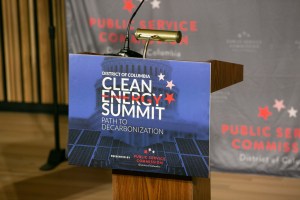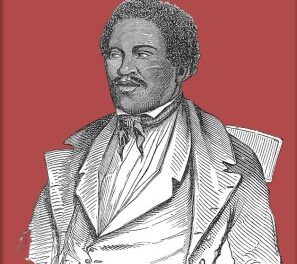
The DCPSC hosted the inaugural D.C. Clean Energy Summit featuring leaders on a panel about the future of the District’s carbon footprint. (Courtesy Photo)
By Micha Green
AFRO D.C. and Digital Editor
mgreen@afro.com
The Mayor and D.C. Council have big goals for the nation’s capital to reduce its carbon footprint, and local offices, agencies and organizations have been committed to that mission. The District of Columbia Public Service Commission (DCPSC) has been lauded for their incredible dedication to working with local agencies, utility companies and beyond to ensure that D.C. meets its goals with equitable access to renewable energy resources. That’s why when DCPSC Chairman Willie Phillips had the idea to hold a clean energy conference during a pandemic, the Commission and City jumped on board and made it happen both in-person and virtually on Sept. 28.
“Government leaders, stakeholders, advocates, as well as thought leaders in our industry,” Phillips said at the beginning of the summit, “will bring to bear their opinions, their advice and their counsel, so that we can do, what I believe, is the most important issue of our time, and that is the clean energy transition.”
Phillips was recently nominated by President Joe Biden for the Federal Energy Regulatory Commission, an honor the event’s first guest speaker celebrated.
The event’s first guest speaker was Ward 5 Council member Kenyan McDuffie (D), who spoke on the Council’s goals in the District reducing its carbon footprint.
“In 2019, the Council enacted the {Clean Energy Omnibus Amendment Act}, which established the most aggressive clean energy goals in the region, including 50 percent reduction of greenhouse emissions and 100 percent renewable energy by 2032, and 100 percent carbon neutrality by 2050,” McDuffie said.
However, these ambitious goals aren’t simply to tout reduced carbon footprint, as systemic environmental racism also plays a role in these leaders’ concerns. Council member McDuffie shared the detrimental role climate change plays in communities of color.
“We must recognize that our low income communities, particularly those communities of color, are facing high rates of infection, hospitalization and death, high rates of unemployment, lack of necessities like food, housing and healthcare, and let’s not forget the inability to pay the utility bills,” McDuffie said candidly. “It’s also important that we remember that these same communities often face the harshest consequences of climate change, including unprecedented flooding and power outages, they’re also often located near industrial facilities and subject to some of the poorest air quality in our neighborhoods. The path to clean energy must make its way to these communities, rather than go around them.”
The event featured multiple panels, where clean energy experts shared their findings, accomplishments and plans on improving energy efficiency.
One panel included the “To 2032 and Beyond! How will D.C. Reach Its Ambitious Clean Energy Goals.”
The event talked about equity such as achieving more solar panels in more marginalized communities and Wards than affluent ones in the District.
DCPSC Commisioner Honorable Emile Thompson introduced the panel discussing the District’s goals, saying and described how communities should tape into more “naturally occurring energy,” such as “sunshine outside,” and “fresh air.”
D.C. Water COO Kishia Powell shared how the agency is a leader in wastewater treatment plants, and is working diligently to cleaner energy.
“D.C. Water is really a globally recognized water sector utility, serving customers in th6e District of Columbia as well as regionally, though critical infrastructure, which includes 29 pumps, and yes, the largest advanced wastewater treatment plant in the world- 153 acres of wastewater treatment plant- or as we like to say, resource recovery facility. So we do consume a lot of power,” Powell said in the panel. “And as I see it, D.C. Water has worked to address three goals shared by the District, and that’s cutting greenhouse gas emissions, increasing our resiliency and reducing waste.”
Sandra Mattavous- Frye of the Office of the People’s Counsel emphasized reaching out to the community to learn their renewable needs.
“We must facilitate the opportunity for consumers to provide input,” she insisted.
Help us Continue to tell OUR Story and join the AFRO family as a member – subscribers are now members! Join here!
The post DCPSC hosts inaugural D.C. Clean Energy Summit appeared first on AFRO American Newspapers .











